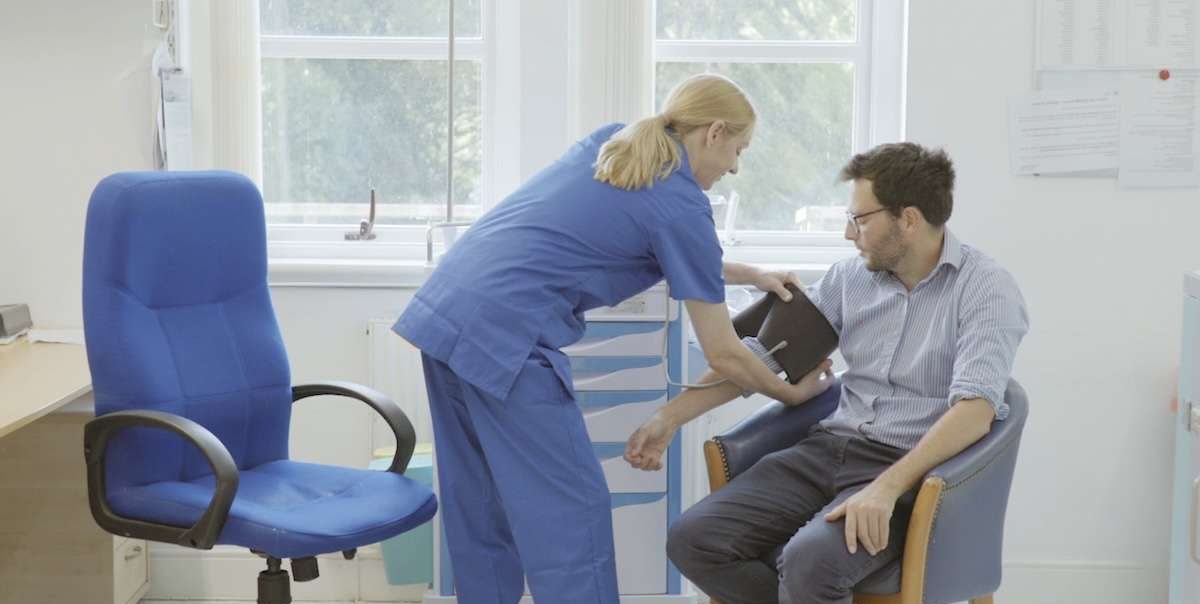
Residential OxyContin Detox Treatment
Castle Craig offers medically managed OxyContin detox within the safety and privacy of our residential centre located in the heart of the Scottish Borders. With a skilled and compassionate multidisciplinary team, we deliver evidence-based care tailored specifically to OxyContin withdrawal and recovery. Our 28-day and longer-term OxyContin rehab treatment combines therapeutic support with a holistic approach, designed to help you regain strength and find balance in a serene setting surrounded by breathtaking scenery and wildlife.
This article provides essential information on key topics, including how long it takes to detox from OxyContin, possible OxyContin withdrawal symptoms and how to access medically managed OxyContin detox plans. If you’re seeking safe and effective treatment for OxyContin dependency, we are here to support you at every stage. Contact Castle Craig on 01721 546 263 to learn more about our medically managed OxyContin detox your recovery today.
What is OxyContin Detoxification?
OxyContin detoxification is the process of safely clearing OxyContin from your body, often conducted under medical management to assist with minimising any potential withdrawal symptoms. An OxyContin detox can mean the physical effects of stopping the drug are addressed in a controlled and supportive way..
The detox process is often an essential initial step in overcoming OxyContin dependency for many, helping to prepare the groundwork for ongoing recovery and well-being.

Start Your Recovery at a Residential Rehab Today
What is a Medically Managed OxyContin Detox?
A medically managed detox for OxyContin involves expert care to provide a safe and comfortable withdrawal process while your body adjusts to the absence of the drug. This approach minimises any risks associated with detoxification and provides relief from the discomfort of withdrawal.
Medically managed OxyContin detox typically includes close and consistent monitoring, care plans specific to your needs, and, when necessary, the use of medication to help with withdrawal symptoms. By always putting your safety and well-being first, a medically managed detox offers the initial base for a successful and ongoing recovery from OxyContin dependency.
Difference Between Medically Managed OxyContin Detox and Medically Supervised OxyContin Detox
A medically managed OxyContin detox involves active medical care, with teams of medical staff delivering treatment focusing on withdrawal symptoms directly. On the other hand, a medically supervised detox focuses on monitoring and oversight. It may involve less direct medical intervention throughout the process.
The higher level of care in a medically managed detox includes personalised medical support, regular monitoring and relief for withdrawal symptoms. Those requiring additional support during OxyContin withdrawal may find this approach especially beneficial. It provides enhanced safety and reassurance, particularly in complex or challenging cases of OxyContin dependency.
Free OxyContin Addiction Assessment
Castle Craig provides free drug addiction assessments at the start of your treatment for OxyContin misuse. These initial evaluations are designed to help us understand your specific requirements and create a clear starting point for your journey towards recovery.
Following your free assessment, our team will craft a personalised residential treatment plan to support your rehabilitation from OxyContin. By taking your unique challenges and background into account, we aim to give you the best possible care for your recovery. Call us today on 01721 546 263 to begin the first move towards a healthier future.


Benefits of Inpatient Residential OxyContin Detox and Withdrawal Treatment
An inpatient residential OxyContin detox care plan and withdrawal treatment offers numerous benefits, including structured support and care focused on specific needs. The patient’s overall safety during withdrawal is the top priority, while a caring residential environment provides a caring space dedicated to meet the physical and psychological needs of patients.
Below, we explore the key advantages of undergoing an inpatient detox for OxyContin. Each benefit, including long-term recovery support and mental health provision, shows that the detox process is as safe and effective as possible for those overcoming dependency on OxyContin.
-
24/7 Medical Management for Safe Synthetic Opioid Detox
One of the key benefits of inpatient opioid detox is round-the-clock medical supervision. Withdrawal from OxyContin can lead to intense and potentially dangerous symptoms, including severe nausea, elevated blood pressure and intense cravings. With constant medical oversight, health risks during an OxyContin detox can potentially be minimised, prioritising patients’ safety and comfort.
Medical management during OxyContin detox also allows for immediate intervention if complications arise, such as dehydration or cardiac irregularities. This level of care provides peace of mind for both patients and their families, knowing that expert support is available at all times.
-
Structured Environment to Support Recovery from Oxycodone
An inpatient setting provides a structured and consistent environment that is crucial in effective rehab for prescription medications. Patients benefit from a routine that includes medical check-ins, therapy sessions and holistic activities to address the physical and psychological challenges of detoxing from prescribed opioid medications.
A controlled medical environment reduces exposure to triggers and opportunities for drug misuse, allowing individuals to focus entirely on their recovery without outside distractions or temptations.
-
Tailored Detox Plans for Prescription Opioid Dependence
No two recovery journeys are the same, which is why personalised detox plans are a foundation of inpatient rehab care. Each patient’s treatment is based on factors like medical history, duration of use and the intensity of dependence. These tailored plans aim to make sure that treatments are effective and responsive to individual needs.
Patients receive adjustments to their medication or therapeutic approaches as needed, facilitating steady progress during withdrawal while minimising discomfort. This individualised care increases the chances of successful long-term recovery.
-
Mental Health Support During Withdrawal from Prescription Drugs
OxyContin withdrawal can bring intense emotional challenges, from anxiety to depression. A carefully structured inpatient programme includes mental health support to address these issues. Trained therapists could provide one-on-one and group addiction counselling sessions to help individuals process their emotions in a constructive way.
Mental health support helps patients develop coping strategies to manage stressful situations, reducing the risk of relapse and building a strong foundation for the recovery process.
-
Dual Diagnosis Care for Mental Health and Opioid Addiction
For many individuals, OxyContin addiction overlaps with mental health conditions such as depression, PTSD or anxiety disorders. Dual diagnosis treatment offers an integrated approach to address both substance dependence and underlying mental health struggles simultaneously.
Comprehensive care helps patients identify the root causes of their addiction while providing healthier coping mechanisms, significantly improving their overall well-being and recovery outcomes.
-
Peer Support and Group Therapy for Prescription Opioid Recovery
The sense of connection and understanding found in group therapy is an invaluable part of residential treatment. Sharing experiences in a supportive environment allows patients to break the isolation often associated with addiction.
Peer support provides encouragement and insight into challenges unique to those recovering from prescription opioid dependence. This bond can help patients build a network of support that extends beyond the walls of the private detox centre.
-
Aftercare & Long-Term Recovery Support for Oxycodone Addiction
Recovery doesn’t end after detoxing from oxycodone. Aftercare planning is essential for maintaining sobriety. Private rehab facilities for OxyContin treatment provide personalised plans that may include ongoing therapy, support groups and relapse prevention strategies.
Long-term support encourages individuals to stay engaged with their recovery goals, making sure they have continuous access to resources and guidance needed to sustain their progress and build a brighter, healthier future.
Private Medically Managed OxyContin Detox Centre Near Me
At Castle Craig, we provide private, medically managed OxyContin detox in our inpatient rehab centre. Our fully accredited rehab services for detox take place in a residential setting, offering the safety and expertise you need during this crucial step. We are here to help you overcome OxyContin dependency in a secure and therapeutic environment, with a team of experienced professionals on hand to manage the process. Our aim is to provide the care you need for a healthier and more positive future.

Contact Castle Craig Residential Detox Centre
Castle Craig is located in the tranquil countryside of West Linton, Edinburgh, United Kingdom, EH46 7DH. Located in a peaceful and beautiful natural setting, our facilities offer an ideal environment for recovery, providing privacy, security and specific support as you begin your pathway towards a healthier life.
Find Us
01721 546 263
info@castlecraig.co.uk
Castle Craig,
West Linton, Edinburgh, United Kingdom, EH46 7DH
To learn more about our residential treatment for OxyContin and drug addiction, call us today at 01721 546 263. Our team is ready to provide the information you need and guide you toward the care that sets the foundation for lasting recovery.
-
How to Find Private Inpatient OxyContin Detox Centres Near You
Finding the right inpatient OxyContin detox centre in the UK is an important first step towards recovery. When researching the best options for inpatient rehab treatment services, you could consider the following to make a suitable choice. Begin by researching OxyContin treatment facilities that offer support and care to meet your specific needs.
- Search for “Private OxyContin Detox Near Me” or Include Your Location: Start off your online search with specific phrases such as “private inpatient OxyContin detox centre near me,” “OxyContin detox clinic in the UK,” or “medically managed OxyContin detox UK.” Adding your location can help narrow down the most relevant options close to you.
- Look for Medical Supervision and 24/7 Support: Choose detox and rehab centres for OxyContin near you that offer round-the-clock medical care to safely manage withdrawal symptoms and provide immediate support for any potential complications during the residential detox process.
- Read Reviews and Testimonials: Take some time to read the feedback from former patients. Reviews can offer some insight into a detox centre’s quality of care. Testimonials can reveal the compassionate service and results achieved through the facility’s care plans.
- Consider What’s Included in the Programme: Check of the detox centre provides options such as individual therapy, group counselling sessions or holistic treatments such as meditation and yoga practises to support your recovery and well-being.
- Enquire About Costs and Payment Options: Try to make sure you have a clear understanding of all the potential charges and how you could pay. Before making any firm decisions, ask about the costs of drug rehab with detox and any payment options available, including instalment plans.
- Check if They Accept Health Insurance: Make sure to verify if the detox centre works with health insurance providers, like Aetna, Aviva and others, as this could significantly reduce the costs for an OxyContin detox plan if you are covered.
Find Out About Our Residential OxyContin Detox Treatment
Castle Craig offers free OxyContin addiction assessments as part of the admissions process designed to provide a safe and discreet starting point for your recovery. Our team is here to listen and support you, helping you take the first steps towards a healthier future. Get in touch via our secure contact form to begin your journey towards lasting change.
Following your free assessment, we can create a personalised, medically managed detox care plan customised to your needs. Our expert team specialises in OxyContin addiction recovery plans that combine evidence-based care with ongoing support, promoting sustainable recovery. Contact us today on 01721 546 263 to find out how we can help you on your path to health and sobriety.
Free OxyContin Addiction Assessment
Taking the first step and asking for help can feel daunting, but our team is here to assist you.
Signs, Symptoms and Effects of OxyContin Withdrawal & Detoxification
OxyContin detox can often bring numerous physical and psychological challenges. Understanding these common symptoms and signs can help you recognise what to expect during OxyContin withdrawal and detoxification. While this guide outlines key experiences, it’s important to note that each patient’s opioid detox timeline and symptoms may vary.
-
Early Signs of OxyContin Withdrawal
Early oxycodone withdrawal symptoms typically appear within the first 6-12 hours after the last dose. These signs can progressively intensify over time.
- Restlessness and irritability: A persistent feeling of agitation or unease could make it difficult to relax, possibly leading to irritability with others and strained relationships.
- Muscle aches and joint pain: Physical aches can spread across the body, particularly affecting the muscles. This could cause neck and back pain, bringing about a marked discomfort.
- Anxiety or unease: A growing sense of nervousness or fear could spark anxiety during the early stages of withdrawal.
- Sweating or chills: Fluctuations in body temperature could lead to periods of intense sweating or sudden chills without an obvious cause.
- Frequent yawning and watery eyes: Persistent yawning, even when not tired, and watery eyes are both physical signs commonly seen during the early period of OxyContin withdrawal.
-
Moderate to Severe Symptoms of OxyContin Withdrawal Syndrome
Moderate to severe symptoms of opioid withdrawal may develop within 24-48 hours after the last dose of OxyContin, and can significantly affect physical and mental well-being.
- Nausea, vomiting and diarrhoea: Gastrointestinal distress is a common sign, possibly leading to nausea, episodes of vomiting and bouts of diarrhoea.
- Insomnia and disrupted sleep: Falling or staying asleep could become challenging, leaving people undergoing OxyContin detox exhausted and irritable.
- Elevated heart rate and high blood pressure: Withdrawal can put strain on the cardiovascular system, causing an abnormal increase in heart rate and blood pressure.
- Dilated pupils and blurred vision: Pupils may appear unusually large and vision may seem hazy or unfocused.
- Intense cravings for opioids: A strong desire to use OxyContin can dominate thoughts, making it challenging to resist relapse without support.
-
Psychological Effects of OxyContin Withdrawal
Psychological symptoms usually peak in intensity around 48-72 hours after withdrawal begins, varying in severity based on individual circumstances.
- Depression and hopelessness: Intense feelings of sadness or despair could emerge during the withdrawal period, especially in the absence of professional psychological support and guidance.
- Mood swings and emotional sensitivity: Rapid shifts in mood can occur, causing emotional turbulence and sensitivity to minor triggers.
- Panic attacks or generalised anxiety: Sudden anxiety attacks or an overwhelming sense of dread can be a significant withdrawal challenge.
- Difficulty concentrating or brain fog: Mental cloudiness and trouble focusing may make everyday tasks feel overwhelming and confusing.
- Low motivation and anhedonia (loss of pleasure): The inability to feel joy or excitement, even during activities previously enjoyed, can develop during withdrawal.
-
Physical Signs and Symptoms During OxyContin Detoxification
Physical symptoms during opioid detox typically span the first week but may linger longer depending on the individual’s health and history of OxyContin use.
- Sweating and cold flashes: The body may alternately produce excessive sweat followed by chills, making comfort difficult.
- Stomach cramps and digestive discomfort: Abdominal pain and irregular digestion are frequent challenges during OxyContin detox.
- Tearing eyes and runny nose: Watery eyes and a persistent runny nose may resemble symptoms of a common cold.
- Tremors or shakiness: Uncontrollable shaking or trembling of the hands, legs, or other body parts could occur.
- Headaches and fatigue: Severe headaches accompanied by constant tiredness can impair daily activities during a substance misuse detox.
-
Long-Term Effects Without Proper OxyContin Detox Support
Prolonged OxyContin use or attempting detoxification without medical guidance can result in lasting health and social implications. Seeking out professional help and medical management can reduce the risk of long-term health problems.
- Ongoing depression and anxiety: Without intervention, emotional instability may persist, impacting daily life and overall well-being.
- High risk of relapse and overdose: Without proper support, individuals face an increased likelihood of returning to OxyContin misuse, raising the potential for accidental overdose.
- Chronic sleep disturbances: Sleep issues such as insomnia or difficulty getting a healthy amount of undisturbed sleep may endure long after detox if not addressed.
- Lasting gastrointestinal problems: Digestive issues, including cramping and irregular bowel movements, may become chronic conditions if not properly investigated.
- Strained relationships and social isolation: The emotional and physical toll of addiction can damage personal connections and lead to isolation from loved ones.
Understanding the symptoms and side effects of withdrawing from OxyContin highlights the need for medical assistance, as detox should not be attempted by yourself. A medically managed inpatient detox provides the necessary foundation for more effective, safer recovery process.

Medications Used for OxyContin Detoxification
Medication assisted treatment could be used during OxyContin detoxification to assist with targeting withdrawal symptoms. Whether medication is used during a detox depends on factors like the severity of addiction and personal health needs. Below are some medications that could be used during an OxyContin detox.
- Buprenorphine: Buprenorphine can help to manage withdrawal symptoms by partially activating opioid receptors. It aims to reduce cravings and discomfort, allowing patients to focus on recovery, but must be used in a controlled, medical setting to avoid misuse or dependency.
- Methadone: Methadone is a long-acting opioid medication that alleviates withdrawal symptoms and could potentially help to control cravings, making the transition away from OxyContin more manageable. Methadone carries risks when used inappropriately, and must be administered under medical supervision.
- Clonidine: Clonidine addresses withdrawal-related symptoms like high blood pressure, anxiety and sweating by reducing the overactive stress response in the body during OxyContin detox.
- Lofexidine: Similar to clonidine, lofexidine could be recommended to manage opioid withdrawal symptoms. It can help decrease discomfort without causing the sedative effects of opioids.
- Naltrexone: Naltrexone blocks the euphoric effects of opioids, potentially reducing the temptation to relapse. It could be introduced to the patient after detox to support long-term recovery.
- Diazepam: Diazepam, a benzodiazepine, is commonly used to ease anxiety, restlessness or sleep disturbances that can occur during the withdrawal process.
- Ondansetron: This anti-nausea medication effectively reduces withdrawal-induced nausea, vomiting and gastrointestinal upset, improving comfort during the OxyContin detox phase.
- Ibuprofen: Ibuprofen helps relieve physical discomfort such as muscle aches, joint pain, and headaches, which are common withdrawal symptoms during detoxification.
At Castle Craig, our approach to the use of OxyContin detox medications is undertaken with the utmost responsibility to make sure that they do not result in a new dependency. We appreciate that this may be a concern for some patients, and we are here to assure you that medicines for opioid detox are prescribed only when clinically necessary and are carefully managed under the supervision of our Consultant Psychiatrist and trained medical staff.
Our goal is to alleviate withdrawal symptoms safely while focusing on your overall recovery and the goal of abstinence. By using evidence-based protocols and regularly assessing your progress, we only use detox medications as a short-term tool to support your transition into sobriety, always prioritising your long-term health, well-being and abstinence.

Contact Castle Craig Today
If you’re ready to take the first step towards recovery, contact Castle Craig to learn more about our residential treatment options, admissions process and to arrange a free OxyContin addiction assessment focused on your specific needs. Our team is here to support you with care, compassion and expertise.
Call us today on 01721 546 263 to speak with our friendly team.
Does Health and Medical Insurance Cover OxyContin Detoxification Treatment?
Yes, health and medical insurance may cover OxyContin detoxification treatment, but coverage depends on the terms of your specific insurance policy and provider. Certain insurance plans could provide full or partial reimbursement for OxyContin detox in the UK.
If your insurance provider authorises treatment at Castle Craig, we gladly accept private medical insurance from a variety of major providers. Our team is here to guide you through the insurance admissions process and explain your options. To ask any questions about using health insurance for opioid detox, fill out our confidential contact form and we get back to you.
How Much Does Residential OxyContin Detox Cost?
The cost of OxyContin detox without any extra rehab treatments in the UK typically ranges from £1,000 to £6,000 for a 7-10 day programme. However, detox is usually recommended as part of a comprehensive residential treatment plan. Within a residential programme, opioid rehab costs can range from £650 to £1,500 daily, or £4,500 to £10,000 weekly.
UK treatment centres for OxyContin will usually provide different costs depending on individual needs, medical requirements and the length of the treatment programme. Castle Craig includes all your addiction treatment and initial detox, if required, within our bespoke pricing guide. Our team can help assess your particular situation and goals, and provide detailed information suited to your circumstances. Contact us on 01721 546 263 to discuss our different accommodation options and OxyContin rehab treatment lengths.
OxyContin Detox Timeline and How Long It Takes
OxyContin detox marks the first step in a comprehensive process for tackling substance addiction. While the detox timeline varies from person to person, there are typical stages that many could experience. It’s important to remember that completing a full rehab programme, as recommended by a healthcare expert, offers the best chance for long-term recovery.
-
Stage 1: Early Withdrawal Symptoms (6–12 Hours After Last Dose)
The first signs of withdrawal typically appear within six to twelve hours after the last dose of OxyContin. During this time, the body begins reacting to the absence of opioids and individuals may experience restlessness, irritability and muscle aches. Unpleasant symptoms, such as these, could potentially be lessened with professional medical management.
The first stage of OxyContin detox could also come with psychological effects like anxiety and unease, as the brain adjusts to chemical changes. Proper hydration, light physical activity and supervised care during this time are essential in making sure the patient stays safe and comfortable.
-
Stage 2: Peak OxyContin Withdrawal Symptoms (24–72 Hours)
From one to three days after the last dose symptoms resulting from an OxyContin detox tend to reach their peak. Common issues during this stage could include nausea, vomiting, diarrhea and abdominal pain. Individuals may also experience rapid heart rate, sweating and intense cravings for OxyContin.
During this critical period, 24/7 medical support can help mitigate severe symptoms and prevent ongoing complications. Psychological support is also extremely important, as OxyContin detox symptoms can be mentally, as well as physically, exhausting. Expert support and medical care during this phase greatly improves the chances of a successful detox.
-
Stage 3: Subsiding Symptoms and Stabilisation (3–7 Days)
After around three to seven days , many OxyContin withdrawal symptoms slowly begin to subside. Patients often notice a gradual reduction in physical discomfort, such as aches and nausea. Emotional equilibrium may also start returning as the body continues to stabilize.
By the end of the first week, many individuals feel a marked improvement in their overall state. However, ongoing support is essential for addressing lingering cravings and preparing the patient for the next phase of OxyContin rehab in confidence.

Related Guides on Medically Managed Residential Detox
Detox Centre | Inpatient Detox | Alcohol | Drugs | Cocaine | Heroin | Crystal Meth | Valium | Tramadol | Benzodiazepines | Xanax | Codeine | Opioid | Ecstasy | Morphine |
Inpatient Medically Managed OxyContin Detox Treatment Admissions Process
At Castle Craig, we understand that each person’s experience with substance addiction is unique. That’s why our inpatient OxyContin treatment care plan is designed to meet each patient’s specific needs, significantly raising the likelihood of a safe and effective recovery process. Below is an overview of how the admissions process works:
- Initial Contact and Confidential OxyContin Addiction Assessment: Your recovery starts with a simple, confidential conversation. Our team will conduct an initial assessment to understand your OxyContin addiction history, challenges and treatment goals.
- Medical Evaluation and OxyContin Detox Admission Eligibility: Once contact is made, a thorough medical evaluation assesses your physical and mental health. This step means that an OxyContin detox can be approached safely and securely, determining eligibility for the inpatient programme.
- Insurance Verification or Payment Planning: We work closely with you to liaise with your insurer after approval or provide clear information about other ways to pay for treatment.
- Admission and Onboarding into Inpatient OxyContin Detox: Once admitted, you’ll be warmly welcomed and guided through orientation. Our staff aim to make you feel comfortable and provide you with reassurance at every stage of the process.
- 24/7 Medical Monitoring and Transition Planning: Throughout your OxyContin detox, experienced medical professionals will provide you with continuous care and support. Once stabilisation from detox symptoms is achieved, our team will help plan your transition into the next phase of recovery.
Each step of our admissions process for OxyContin and opioid rehab treatment is thoughtfully designed to provide care and compassion during a challenging but transformative time. Taking this first step can lead to a healthier life without oxycodone, and our team is here to guide you throughout your journey.
Questions About Detox for OxyContin?
Contact us to discuss your treatment needs with a licensed clinician.
Find Out About Our Residential Drug Detox Treatment
At Castle Craig, we offer free residential addiction assessments to help you understand your treatment needs for OxyContin rehabilitation. Our experienced team of professionals are here to support you at every stage. We can help you take the first steps towards ongoing recovery in a safe and compassionate environment.
We create customised treatment plans made for your specific situation and requirements. Our team can also provide detailed information about the cost of residential opioid rehab, providing you with the clarity you need. Call us on 01721 546 263 or fill out the form below to begin your recovery from OxyContin addiction today.
Free & Confidential Assessment
Compassionate, expertly delivered evidence-based practices and a patient-centred approach are at the heart of our treatment model. Request a call-back from one of our professionals on any day of the week.
-
Statistics on OxyContin in the UK
- Between 2022 and 2023, nearly half (48%) of adults in substance abuse treatment were there for problems with opiates.
- Globally, in 2019, 600,000 deaths were attributed to drug use. Nearly 80% of those deaths were related to opioids.
- In Scotland, opioids were implicated in more than 80% of drug misuse deaths.
- The UK had the world’s highest rate of opioid consumption in 2019.
- Almost three-quarters of adults starting treatment for substance misuse said they had a mental health treatment need.